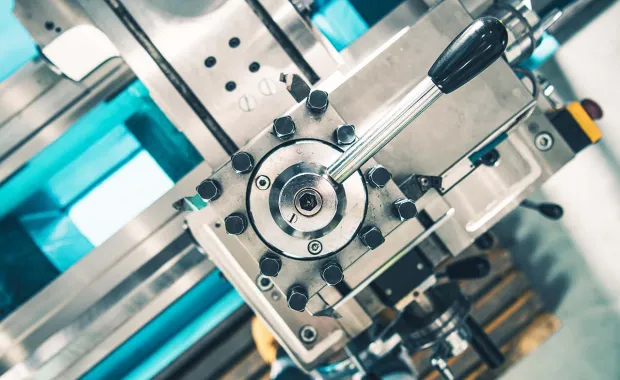There are several pressing reasons manufacturers need to act now to become data-driven organizations. But perhaps at the most fundamental level — data helps manufacturers become better at what they do. Let's look at some tangible ways data helps manufacturers drive smart, sustainable and resilient operations.
- Energy efficiency – Data helps run machines and mix recipes in the most efficient way.
- Sustainability progress – Collecting relevant ESG data for reporting enables transparency of sustainability improvements and regulatory compliance.
- Knowledge preservation – Capturing the invaluable expertise of an aging workforce about to retire ensures business continuity.
- Product quality – Data helps control production processes more granularly and better guide operators to optimize machine settings, leading to better quality and efficiency.
- Customer experience – Better products equal happier customers.
- Rework and wastage – More first-time-right (FTR) production eliminates the need to redo or perform unnecessary additional steps, reducing cost, wastage and labor.
Data needs to be accessible and fit-for-purpose
Given the wide-ranging benefits, many manufacturers are exploring how to become truly data-driven enterprises. In my work with manufacturing clients, I find that, broadly, there are two areas manufacturers are currently focused on:
- Developing a data repository across the organization and its various locations as a foundation to beginning their data journey
- Exploring and building experience in advanced data analytics, including machine learning models, to improve product quality and asset performance
While this is a promising start, many manufacturers falter on the next steps. Where do we go from here? How do we scale successful data initiatives and expand them to other locations?
To be data-driven, manufacturers require data. While there is no shortage of data, data silos across people, processes and machines make accessing and integrating all relevant data difficult. Different data historians*, definitions and management frameworks result in data that is not usable, traceable or comparable across assets and plants. Critical information that provides valuable context to machine-generated data may even be "lost" in spreadsheets or other documents.
Getting the most from your data with an MES
Here's where a manufacturing execution system (MES) comes in. According to the Manufacturing Enterprise Solutions Association (MESA), an MES is a dynamic IS application "that drives the execution of manufacturing operations, and by using current and accurate data, MES guides, triggers and reports plant activities as events."
An MES has two critical roles to play in a data-driven organization. The first is to collect data in a way that it can be processed to provide insights. An MES gathers data from all the machines and operators and makes the data comparable across plants, production units and machines by standardizing aspects like energy consumption data and reason codes for machine breakdowns. Access to comparable data across plants and machines hugely accelerates the ability to benefit from advanced analytics.
The second critical role is as the interface back to the shop floor. Once you have all the data and use it to optimize processes — from energy efficiency to quality — the MES returns the data to the machines and production process. Here's where the rubber meets the road. Updated, optimized machine settings are communicated to machine control systems through the MES or displayed to operators to guide them in fine-tuning the production process.
An MES is critical to close the loop — from data to analytics to the production process.
Key benefits of an MES
An MES ensures manufacturers have the right information and insight to make the best possible business decisions and improve performance levels across the supply chain. Apart from being the foundation for implementing data-driven manufacturing, on its own, the top five benefits of an MES include the following:
- Improved quality control typically leads to a reduction in product defects
- Quicker identification and implementation of changes to the production process based on evolving market, customer and business needs
- Faster deployment of innovation as a result of similar processes and MES implemented across all your sites
- Lower work in progress (WIP) and lead times from better operational visibility and control
- Significant reduction in data entry time, paperwork and typing errors through automatic and on-the-spot data capture
Here are the critical success factors for implementing an MES
- Secure organization-wide buy-in: After your ERP, implementing your MES is the biggest project your organization will undertake. This is why everyone in the organization (not just the OT department or a few plant managers) must understand the reasons for rolling out an MES, the program's size and scale, as well as the resources and the change management required.
- Get your data in order: How will you connect or replace existing historians? Are all data definitions clear and decided, and who owns them? Who owns the various data? Is there a governance structure in place? Answering all these questions will lay the foundation for data success.
- Don't boil the ocean: If your data currently resides in Excel sheets and documents, instead of implementing a full MES, start with the basics, such as monitoring production orders and gaining better visibility of your production process. With better control in place, you can then layer advanced functionalities on top, including quality and process management maintenance, scheduling, resource allocation, etc.
- Ensure you have the right talent pool: If this is the first time you are implementing an MES, make sure you hire people with the skill sets required to run an MES or collaborate with a trusted partner that has the skills and capabilities to support you or, ideally, a combination of both.
Unfortunately, there are no "silver bullets" to improve your manufacturing performance; however, implementing an enterprise-wide MES is a must-have and a key step in becoming a data-driven manufacturer. What's your view? Contact me to have a discussion.





